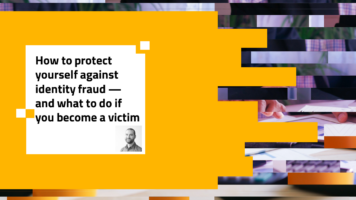Mastercard and Curve are some of the latest companies offering a Buy Now Pay Later (BNPL) solution and join the ranks of PayPal and Revolut, as well as the already established Klarna. Just as the pandemic revitalised the QR Code, it’s made BNPL a go-to option for many.
Despite its seemingly recent emergence, BNPL has been around for a lot longer than many realise. Five million people in the U.K. now use BNPL at checkout, generating £2.7 billion in transaction value, with the average loan value being £65-£75 per transaction, and there are a number of high street merchants who offer this service directly, as well as the catalogues your mum would have had delivered. If we look across the channel, it has been an established payment method in countries such as Germany, which have been using open invoices for more than 10 years.
The pandemic has significantly impacted customers’ bank balances and I have previously discussed how this can lead down a dark path towards friendly and third-party fraud. So where does BNPL risk play a role?
The enticement of being able to obtain an item and not have to see your account taking a hit is an appealing factor in the rise in popularity of this payment method, as is the relative ease of obtaining credit without having to supply every detail about your life and wait 2 weeks to get a result. From a merchant’s perspective, you can offer a more affordable option to your customers and receive the funds immediately rather than waiting months for each instalment before handing over the goods.
But there are risks. By deferring payment and seeing their account balance stay healthy, consumers are finding themselves slipping into debt when the inevitable monthly repayment reminder lands in their inbox due to their short-term needs. They haven’t just deferred payment, they’ve deferred responsibility. But you still get your money, so what’s the problem?
BNPL is just like having a credit card though, right? It has the same benefits of not having to pay all at once and being able to pay off over time and in instalments, right?
Well, no, not really.
Section 75 is a U.K. protection regulation that comes under the Consumer Credit Act of 1974, which in certain cases allows the cardholder to get a full refund from their credit issuer on single purchases between £100 and £30,000. It also comes with any type of credit card offering security and protection in the event of a merchant going bust or not responding to communications.
Currently, BNPL is relatively unregulated. All those forms and information consumers have to complete when applying for a credit card may seem laborious to them, but one of the key differences with BNPL is that affordability checks are often not carried out, resulting in defaulted loans. It’s clear that further regulations are needed, but the question is: will we see the BNPL bubble pop or will BNPL continue sit amongst the other payment methods offered at checkout?
What about the fraud risks? As with any form of commerce, there are fraudsters waiting to exploit loopholes for their gain, and BNPL is no difference. Whilst none are specific only to BNPL, there are nuances to how they are perpetrated, including:
- Application fraud – falsifying consumer information to obtain a credit agreement.
- Synthetic fraud – a fraudster mixing stolen and real information with fake information to open fraudulent accounts.
- Account Takeover (ATO) – if an account is compromised, then a fraudster can extend the users loan without their knowledge. They may also have enough information to change the controls in place.
- First party – entering into an agreement with no inclination to repay loan.
- Return fraud – buyers remorse setting in once the repayments start to appear.
In the event of fraudulent activity, liability will mostly be taken by the individual BNPL provider, but that’s not to say there aren’t any negative implications for merchants, as it will be you that the consumer associates with the fraud, not the provider.
Whether you are a consumer considering using BNPL for your next purchase, or a merchant looking to add it to your checkout page, it is important to understand the pros and cons. This is especially relevant as International Fraud Awareness Week kicks off on 14 November and also as we head into the holiday spending season.
Share

 by
by 



